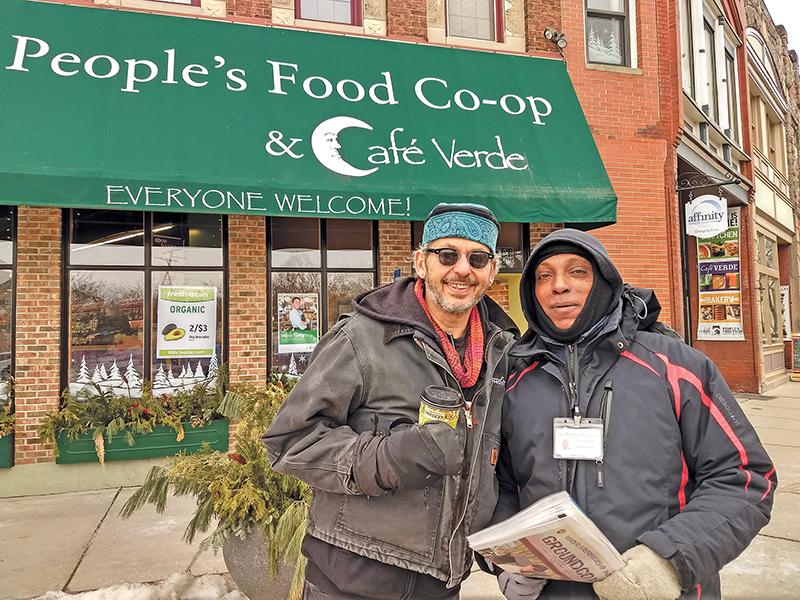Groundcover News was founded during the Great Recession with a mission “to create opportunity and a voice for low-income people while taking action to end homelessness and poverty.”
Vendors earn money selling it on the streets–though they’re sometimes mistaken for panhandlers. “There are many misconceptions about who we are because we stand by the side of the road,” says Elizabeth “Lit” Kurtz. “We are businesspeople. We buy the product we resell, decide how much to buy, where to sell, how to pitch it. We budget and pay taxes.”
A former teacher, Kurtz was living in her car and panhandling to buy gas when she discovered Groundcover. It’s not easy, she says, to “stand outside in some of the coldest Michigan temperatures” but after five years, “I’ve developed my own sales skills, and I’m as pleased about that as I am about my professional teaching certification.”
Kurtz earns enough money to rent a hotel room, while still having time to write, shoot video, and post on social media about her efforts to end homelessness. “In the five years since I lost my teaching job, this has consumed me,” she says.
Zhandra S., who’s reconstructing her life after getting waylaid by drugs, asked that her full name not be published. She sold Groundcover for a while, stopped when she got a job in a restaurant a few years ago, and came back recently after her hours were cut. “I tried to find an additional restaurant job, but neither [place] would allow me flexible hours or a set schedule where I could work both,” she says. “Now I go out and sell a few evenings a week after I finish my restaurant shift. With both jobs, I can save to go back to school.
“I get to talk to people I don’t know and practice my social skills when I sell Groundcover,” she adds. “Most importantly, Groundcover motivated me to write and grow as a writer. I always considered my writing not good enough, but I was still able to get an article published–my article with my name and my picture!”
“You acquire a lot of translatable skills that you don’t even know you’re acquiring,” says Hailu S., who also asked that his full name not be used. An immigrant from Ethiopia, he started selling Groundcover during the nine months it took to replace a lost green card. “I was a very shy and private person before–I didn’t even think I could sell Groundcover News at first,” he says. “Now I’m a chatterbox. It’s easy for me to joke and chat with people, to be my natural self.
“I had never engaged in any kind of entrepreneurship before, either,” Hailu adds. Now he’s hosting Airbnb rentals and starting his own transportation business. He began by renting cars to drive for Uber and Lyft as well as for private clients he met through Groundcover and Airbnb, and just bought a used car of his own.
But he’s stayed on the paper’s board of directors, and still sells about twenty hours a week. While it’s “more comfortable working indoors or in a car,” he says, “I am passionate about what we at Groundcover do as an organization.
“I like being part of it because we literally change lives,” he says. “I watch people walk in broken down, and two to three weeks later, you see them perk up and walk around with dignity.”
